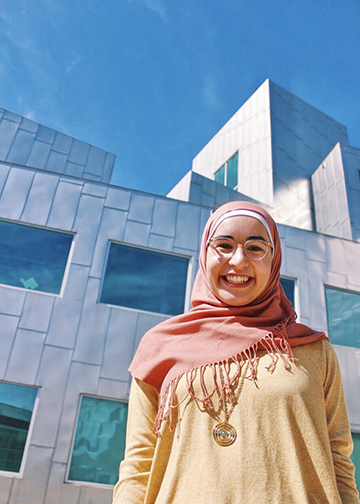
"Wherever my career takes me, from analyzing the melting of ice caps to volcanic activity to black hole formation, I will strive to make discoveries that drive humanity forward. As a woman and minority in the tech community, I have a mission to show underrepresented individuals that they are capable of being great problem solvers."
Hometown: Iowa City, Iowa
Year: Third-year undergraduate student
Program: Computer Science and Engineering
Mission Areas: Systems and Sensors
Lab: Ananya Sen Gupta Research Group
Advisor: Ananya Sen Gupta, assistant professor of computer and electrical engineering